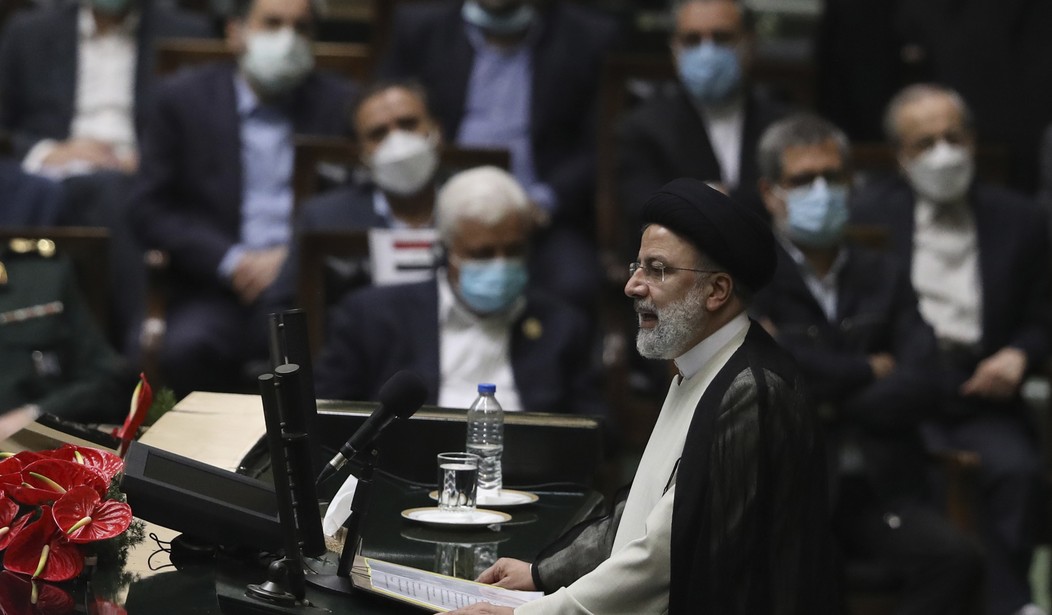The current nationwide uprising in the Islamic Republic of Iran has posed a challenge to the theocratic leadership since day one. But the seriousness of that challenge became especially undeniable when the Iranian school year began, in the first week of October. With that, unrest over the killing of Mahsa Amini spread not only onto university campuses – familiar hotbeds of political activism – but also into high schools, where teenage girls soon began demonstrating phenomenal bravery by removing their mandatory head coverings, tearing up pictures of the regime’s founder and current supreme leader, and even chanting slogans to drown out government propaganda until its purveyors were forced to retreat.
The schoolgirls’ activism seems to have inspired an upsurge in discussions throughout the world which acknowledge the possibility that this latest uprising will not merely flare and be crushed like various movements in the past, but could set the stage for a new revolution and the definitive collapse of the clerical dictatorship.
In the first place, teenage involvement in the uprising undermines familiar narratives about apathetic youth while generally broadening the profile of already very diverse activism. But what may be even more important about this development is what it says about the authorities’ efforts to stamp out dissent, namely that they have been not only ineffective but counter-productive.
As young Iranians have evaded Tehran’s imposed internet outages to share their experiences with foreign media outlets, many of them have described being stirred to participate in the unrest after learning about the deaths and injuries that had already resulted from crackdowns on the first two weeks of protests. Victims like Nika Shakarami, Sarina Esmailzadeh, and Hadis Najafi have become approximately as well-known and widely mourned as Amini herself, with the former two having each been only 16 years old when they were killed by security forces.
Their deaths have reinforced the message behind the initial protests, especially among Iranian teenagers. They underscore the fact that anyone could be made subject to violent and even fatal treatment by abusive authorities at any time. In this sense, each time those authorities attempt to silence the protesters’ chants of “women; life; freedom,” they end risk driving more people into the streets, including people not typically associated with the public expression of anti-government sentiments.
Recommended
This risk is made even greater by the fact that the Iranian activist community has demonstrated an ever-increasing capacity for coordinated action in recent years. This is clear not only from the identical slogans being chanted simultaneously within all major cities and towns during the current uprising, but also from the sheer frequency of nationwide uprisings in the run-up to this proto-revolution. Since the end of 2017, there have been approximately ten, and the first of these compelled Supreme Leader Ali Khamenei to acknowledge that the leading pro-democracy opposition group, the People’s Mojahedin Organization of Iran (PMOI/MEK), had played a leading role in facilitating the unrest.
In press statements and international gatherings, the MEK has lauded the activity of its “Resistance Units” – activist collectives operating throughout the Islamic Republic to highlight the potential for regime change and the existence of an alternative in the form of the National Council of Resistance of Iran.
Though women’s rights remain a major focus of the uprising, with women as its leaders, many of the slogans that define it are the same or similar to those which defined each of its predecessors, dating back at least to 2017. These include “death to the dictator”, “we do not want the Islamic Republic”, and “down with tyranny, be it the mullahs’ or the shah’s.” Their nationwide repetition should leave little question about the public’s appetite for regime change, and this in turn should leave little doubt in the minds of Western policymakers about the strategic and moral value of supporting the current uprising.
The first and most essential step toward providing that support is to simply affirm the rights of all Iranians to defend themselves by any means available to them against abusive authorities and to overthrow the very system that empowers those authorities. When that has been done, concrete measures must be taken to aid in that defense. Sanctions alone will not serve that purpose, since their targets generally do not have assets available for seizure in the US or Europe. While global isolation of the regime and its officials may weaken their capacity to crack down on domestic activism, the deck will remain stacked against the people until such time as the world empowers them to fight back even more effectively than they already have been.
This is not to say that Western powers should strive to involve themselves directly in the Iranian people’s struggle. But democratic governments and global institutions can help those people to realize their own future by making sure that they have the technical resources to share information with one another and with the world at large, and that when they do so they will always be reminded of the political support they are receiving from the entire civilized world.
Ken Blackwell is the former U.S. ambassador to United Nations Human Rights Commission.

























Join the conversation as a VIP Member